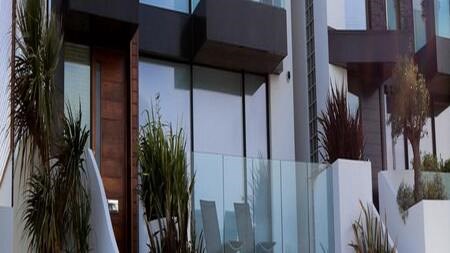Location, usable space, age and condition of the property and economic indicators are all key factors which often impact a person’s ability to buy or sell a home. One of the most important elements that can make or break a property transaction is the condition of the property. While so many factors can contribute to the degradation of a property, water ranks very high on the list.
When you think of water damage, you might envision damage from catastrophic events such as hurricanes or floods. You think of the homeowners wading through their living rooms with their possessions floating around them. While this type of water damage is undoubtedly tragic, the average homeowner isn’t going to encounter it. Instead, what’s far more likely is a pesky, leaky pipe that causes home damage with slow but consistent dripping.
Unfortunately, water doesn’t always just drip straight down. It will “run” along horizontal surfaces and can often cause lots of damage in places you wouldn’t expect. Also, the damage is often located under hardwood floors, walls, tiled surfaces, etc., all of which will need to be pulled out, replaced and then refinished.
Plumbing issues which are likely to trigger water damage:
• Rusty pipes • Old water heaters • Leaky toilets • Water sewer issues • Backflow and cross-connection issues
Places where water damage occurs and is first visible
• Bathrooms, where toilets and showers tend to have slow leaks that can cause substantial damage over the years. • Refrigerator water lines, which often drip unnoticed behind the refrigerator, where no one ever looks. • Areas around the kitchen basin especially in the drawers where the pipes are connected. • On the exterior of your home, in places that are constantly getting wet and then drying out. Think: eaves, trim around exterior doors, garage doors, etc.
Type of damage property suffers
Structural Issues from Water Damage
When a storm or flood causes major water damage to your home, the structure of your home could have issues. Finding and addressing these structural compromises in the walls, floors, ceilings, and crawl spaces in your home can help to minimize the decrease in the value of your home. It is important to inspect your home thoroughly for any structural damage, such as rotting wood, sagging beams, cracks in walls, and broken electrical fixtures.
Foundation Issues from Water Damage
If you have had detrimental water damage from a flood or burst pipe, the water may have damaged your foundation. If you have a basement, floods can cause irreversible damage to the foundation.
Foundation issues are not always caused by water, but the water usually makes any foundation issues worse very quickly. If your foundation has shifted and small cracks have formed, water can get into those cracks and erode the foundation away. These signs include cracks in walls, sticky doors, doors unable to close, and uneven flooring. This can easily be the most expensive part of fixing your home after water damage, but it is also the thing that will decrease the value of your home the most.
Mold
With all the water in your home from flood or sewer backup, there is a risk of mold beginning to grow in the walls and carpets. Mold is not only harmful to your health, but it can soften the materials in your home, causing long term damage to the drywall, studs, and insulation in your walls. Mold feeds on the wood and drywall in your home and spreads into the materials that it eats through.
The long-term presence of mold can be a safety risk for people who are sensitive to its spores, especially if there is a significant infestation of mold. Black mold, for example, can cause itching, watery eyes, rashes, coughing and other problems.
Biggest challenges of selling a home with water damage?
Price reduction:
Buyers know that it may take some money to restore a property with water damage and will likely knock that amount off the offer.
Electrical and health concerns:
Water damage can affect and damage the home’s electrical system which can create a security and life risk.
Possibility of future damage:
Once water damage happens, it can happen again if you’re living in a flood zone or the issue isn’t properly fixed. Buyers know this, too. Essentially, buyers are going to proceed with extreme caution once they know water damage is an issue. This cuts your chances of getting the asking price that you want.
How to prevent water damage
Check tubs and showers - You’ll particularly want to focus on the caulking. If you see an area that looks like it needs a touch-up, do it! Caulk is a lot cheaper than repairing water damage.
Check your hoses - Something as simple as regularly checking the hoses and faucets leading to your washing machine, dishwasher and refrigerator can prevent water damage. You should also replace those hoses at least every seven years to keep everything in good condition.
Locate your main water line - In the event of a major leak, you’ll need to be able to turn off the water supply to your house quickly to minimize damage. Taking the time to locate your main water line before you have a major leak will be a huge time (and money!) saver.
Get a leak alert system - The market offers diverse and affordable water leak detectors.
Keep your eyes and nose open - If you see any discoloration of wood anywhere or if you smell something a bit musty, it’s worth looking into. An easy solution is to pull your refrigerator out once a year or so and see if there is any dampness behind it. Check under sinks and around toilets to see if you notice any spongy warping of the wood.
The info above illustrates how damaging water can be to the existence and the profitable value of the property.



